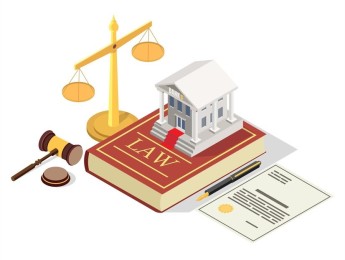Healthcare is an incredibly important sector in society and due to its nature, there is an immense amount of law and regulations governing it and setting the standards of how care should be provided.
Those within healthcare must understand the legal issues commonly faced and how to navigate the law best to provide care to their patients ethically that prioritises their well-being. Alongside the physical treatment, healthcare providers must also understand the ethical side of healthcare and how a patient’s personal views and backgrounds may influence the type of care they expect to receive. All care options should be carefully discussed with patients so they can provide their informed consent.
Healthcare providers must also understand what aspects of care they are legally obligated to report, such as potential abuse, notifiable diseases and any births and deaths within the facility.
Upon completion of this course, participants will be able to:
- Understand the vitality of legal restrictions, regulations, and ethics within the healthcare sector.
- Analyse ethical and legal issues commonly faced in practice, apply policies, and select theoretical perspectives to help navigate these.
- Comprehend the government organisation, sources of law and government ethics.
- Build trust with patients, provide information in a digestible way and gain informed consent throughout their care.
- Assess the nature of confidentiality and understand how to maintain it throughout.
- Assess the different types of patients and explain how their backgrounds may influence the methods of care and communication.
This course is designed for anyone in the healthcare sector who wishes to develop their knowledge of healthcare laws. It would be most beneficial for:
- Operations Managers
- Senior Executives
- Consultants and Doctors
- Senior Nurses and Nurses
- Compliance Officers
- Hospital Directors
- Heads of Departments
- Legal Personnel specialising in healthcare law.
This course uses a variety of adult learning styles to aid full understanding and comprehension. Participants will review video examples of ethical challenges faced within healthcare to identify what laws and regulations it would fall under and how you would ideally proceed in the situation.
They will partake in a variety of learning exercises and methods to aid in knowledge development, including seminars, video materials, case studies and role-playing activities. This assortment of group and individual activities guarantees that the participants will develop a full and cohesive understanding of the taught content and any relevant practical skills.
Day 5 of each course is reserved for a Q&A session, which may occur off-site. For 10-day courses, this also applies to day 10
Section 1: Government Law and Ethics
- Understanding the purpose of laws and regulations regarding the healthcare sector.
- Identifying the laws and regulations that set the standard of care, confidentiality, and ethics within healthcare.
- Ensuring full compliance with all laws and regulations within practice.
- How governing bodies monitor compliance – Department of Health and Human Services.
Section 2 : Health Ethics and Confidentiality
- Describing the principles of healthcare ethics.
- Understanding the debate of ethics and values and how this can pose challenges within healthcare.
- Setting aside personal morals and ethics and doing what needs to be done to help the patient.
- Making rational decisions aligning with medical ethics and patient morals.
- Maintaining confidentiality throughout a patient’s care – maximising safety and possible exceptions.
Section 3 : Criminal Aspects of Healthcare
- Understanding non-compliance with healthcare laws may lead to criminal proceedings.
- Criminal aspects that are directly related to patient care – patient abuse, criminal negligence, manslaughter and more.
- Indications to look out for and how to report potential criminal behaviour within the healthcare sector.
- Crisis management – how to guarantee protection for patients if victimised by criminal acts within a healthcare facility.
Section 4 : Patient Consent
- Defining what consent is and its necessity within the healthcare sector.
- Gaining informed consent through open communication – discussing care in a manner the patient understands.
- Assessing the validity of consent – does the patient have decision making capacity?
- Exploring who may provide consent when the patient doesn’t have capacity – power of attorney, spouse, parent, child and more.
- Understanding the right to refuse treatment and when to stop encouraging treatment.
Section 5 : Legal Reporting Requirements
- Recognising signs of abuse in children, adults, and seniors – unexplained injuries, fearfulness, excessive confusion, being spoken over by another individual and more.
- Reporting potential abuse through the necessary channels and reassuring the patient they are safe during their care.
- How to report notifiable diseases and other necessary procedures.
- Reporting the births and deaths of patients.
Upon successful completion of this training course, delegates will be awarded a Holistique Training Certificate of Completion. For those who attend and complete the online training course, a Holistique Training e-Certificate will be provided.
Holistique Training Certificates are accredited by the British Assessment Council (BAC) and The CPD Certification Service (CPD), and are certified under ISO 9001, ISO 21001, and ISO 29993 standards.
CPD credits for this course are granted by our Certificates and will be reflected on the Holistique Training Certificate of Completion. In accordance with the standards of The CPD Certification Service, one CPD credit is awarded per hour of course attendance. A maximum of 50 CPD credits can be claimed for any single course we currently offer.
- Course Code IND05-130
- Course Format Classroom, Online,
- Duration 5 days














